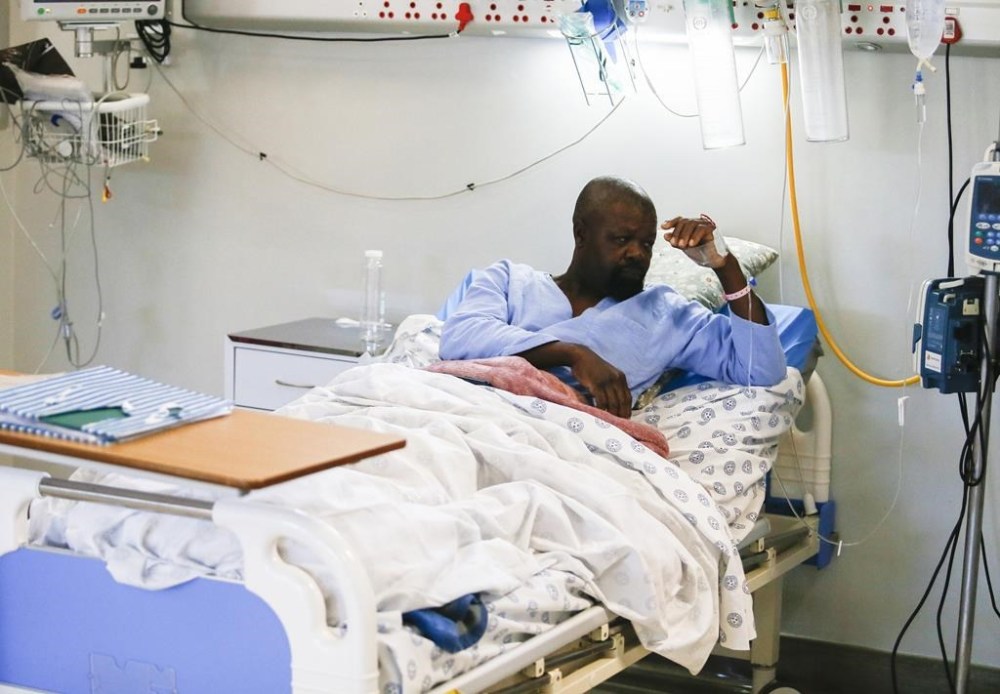Cholera kills 17 in South Africa and a further 9 in neighboring Zimbabwe
Advertisement
Read this article for free:
or
Already have an account? Log in here »
To continue reading, please subscribe:
Monthly Digital Subscription
$0 for the first 4 weeks*
- Enjoy unlimited reading on winnipegfreepress.com
- Read the E-Edition, our digital replica newspaper
- Access News Break, our award-winning app
- Play interactive puzzles
*No charge for 4 weeks then price increases to the regular rate of $19.95 plus GST every four weeks. Offer available to new and qualified returning subscribers only. Cancel any time.
Monthly Digital Subscription
$4.99/week*
- Enjoy unlimited reading on winnipegfreepress.com
- Read the E-Edition, our digital replica newspaper
- Access News Break, our award-winning app
- Play interactive puzzles
*Billed as $19.95 plus GST every four weeks. Cancel any time.
To continue reading, please subscribe:
Add Free Press access to your Brandon Sun subscription for only an additional
$1 for the first 4 weeks*
*Your next subscription payment will increase by $1.00 and you will be charged $16.99 plus GST for four weeks. After four weeks, your payment will increase to $23.99 plus GST every four weeks.
Read unlimited articles for free today:
or
Already have an account? Log in here »
Hey there, time traveller!
This article was published 24/05/2023 (959 days ago), so information in it may no longer be current.
JOHANNESBURG (AP) — At least 17 people have died in a cholera outbreak in the Hammanskraal township outside South Africa’s capital, Pretoria, authorities said Wednesday.
The toll has risen from an initial 10 fatalities reported by local health authorities earlier this week.
Authorities said there were another 29 laboratory-confirmed cholera cases, while 67 people were admitted to a hospital and clinics for gastrointestinal infections.

Health authorities are yet to confirm the exact source of the cholera outbreak, but poor waste water management and local government instability in South Africa’s capital city have been blamed for the situation. The City of Tshwane Municipality, which takes in Pretoria and surrounding areas, has had at least five different mayors since the ruling African National Congress party lost control in local government elections in 2016.
A water plant in Pretoria which is responsible for waste water management for large parts of Hammanskraal is in need of urgent upgrades estimated to cost about $130 million and hasn’t been functioning properly for years, the city’s mayor said.
“It has been out of capacity since about 2005,” said Tshwane executive mayor Cilliers Brink, who was elected in March.
South Africa is the latest southern African nation to experience an outbreak of cholera following deaths in neighboring Zimbabwe and in Malawi this year. In February, the World Health Organization said cholera cases in Africa were rising exponentially amid a global surge. At least 12 African nations have reported cholera outbreaks this year.
Zimbabwean health authorities have confirmed nine recent deaths with another 28 suspected cholera deaths since February. The Ministry of Health said it had recorded 1,404 suspected cholera cases and 359 laboratory-confirmed cases.
Malawi reported earlier this year that more than 1,000 people had died in a widespread outbreak that started in March 2022. It is Malawi’s worst cholera outbreak in 20 years, WHO said, with more than 36,000 cases.
Cholera is a water-borne disease caused by ingesting contaminated food or water. The infection is extremely virulent, although it can be easily treated once identified.
The NGO Gift of the Givers has distributed more than 3,200 sealed 5-litre water bottles to the Hammanskraal community’s local Jubilee Hospital and surrounding clinics where patients are being treated.
In neighboring Zimbabwe, a country with a history of deadly cholera outbreaks, authorities say the capital, Harare, is turning into an epicenter of the current outbreak. Residents in some suburbs have gone for months without tap water, forcing them to dig shallow wells and boreholes that have been contaminated by raw sewage flowing from burst pipes.
The cholera cases in Africa have been attributed to local sanitation problems, but also climatic factors like cyclones and floods that hit parts of southern Africa recently as well as a global shortage in cholera vaccines.
___
Mutsaka reported from Harare, Zimbabwe.
___
More AP Africa news: https://apnews.com/hub/africa

